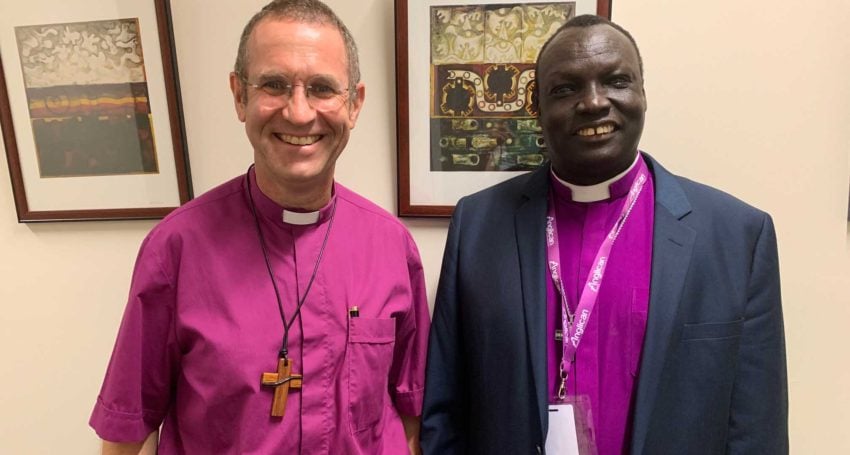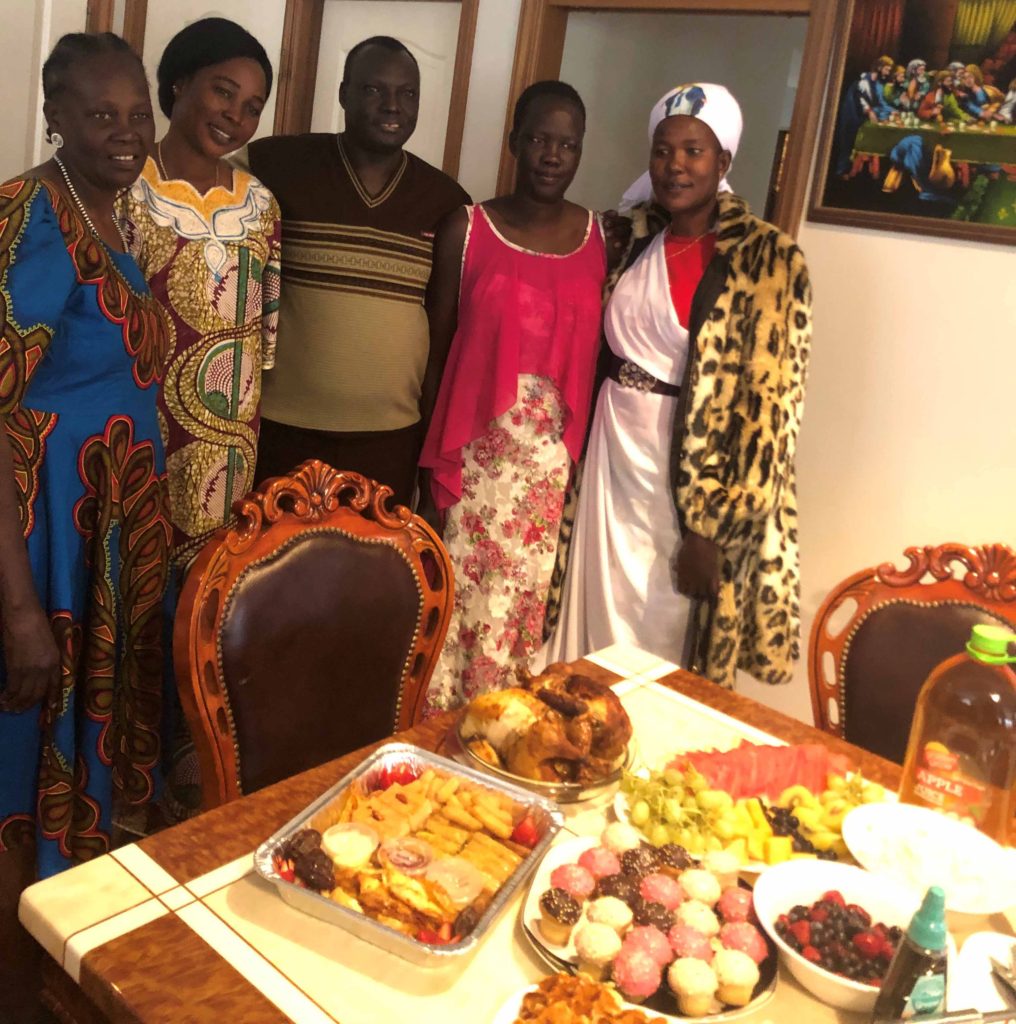“If there is smoke in your house, make sure there is smoke in your neighbour’s as well”
Features
“Every time a family meal is prepared, it is essential that extra is made to have ready for anyone who might come to visit unannounced, so there is plenty to share. Our children are taught this from a young age and are expected to always make extra if they cook. It is a great embarrassment to not have enough for visitors. It does not matter when they arrive – there should always be something to share,” says Resource Church Specialist, Bishop Daniel Abot

At the request of anglican focus, Resource Church Specialist for Ethnic Congregations, Bishop Daniel Abot shares about some important South Sudanese cultural practices and traditions.
Welcoming
When anyone comes to visit your home, in my culture it is really, really important to make them feel welcome. This is done even if they come with little or no notice.
It is customary for senior members of the household to be greeted first and in return refreshments are offered and accepted. It is considered to be good manners to accept refreshments (even if just a small amount is consumed), as refusing the offer may be seen as rude.
A South Sudanese welcome is a genuine expression of happiness from the bottom of the household members’ hearts and is given without any expectation of a return favour.
The reason welcoming is so important in South Sudanese culture is that it reflects on many other traditions of family honour, as passed down from our ancestors. Warmly welcoming a person who visits honours our ancient tradition of making the person feel part of the household.
Sharing food
There is an interesting passage in the Gospel of Luke, which Western Christians tend to read differently to South Sudanese Christians:
“Then he said to them, “Suppose one of you has a friend, and he goes to him at midnight and says, ‘Friend, lend me three loaves of bread, because a friend of mine on a journey has come to me, and I have nothing to set before him.’ Then the one inside answers, ‘Don’t bother me. The door is already locked, and my children are with me in bed. I can’t get up and give you anything.’ I tell you, though he will not get up and give him the bread because he is his friend, yet because of the man’s boldness he will get up and give him as much as he needs.” (Luke 11.5-8)
Advertisement
South Sudanese Christians would read this through the additional lens of family honour and a collective conscience. Being able to offer shared food to a visitor, regardless of the time of day or night, is a matter of family honour. Food would be offered not because of the person’s persistence, but because it would be shameful not to do so.
Every time a family meal is prepared, it is essential that extra is made to have ready for anyone who might come to visit unannounced, so there is plenty to share. Our children are taught this from a young age and are expected to always make extra if they cook. It is a great embarrassment to not have enough for visitors. It does not matter when they arrive – there should always be something to share.

“Every time a family meal is prepared, it is essential that extra is made to have ready for anyone who might come to visit unannounced, so there is plenty to share. Our children are taught this from a young age and are expected to always make extra if they cook” (Bishop Daniel Abot)
Generosity
A common South Sudanese saying goes like this:
“If there is smoke in your house [cooking], make sure there is smoke in your neighbour’s as well.”
However, this is actually about much more than cooking, as this saying extends to other parts of our life.
For example, as well as sharing food, the whole community shares in the needs and burdens of other people when others need support and help.
Advertisement
Here are two examples.
If a member of the community dies without family or means, then the rest of the community automatically comes together to contribute resources to make sure the person is buried with dignity. There is no such thing as a ‘pauper’s funeral’. Every family puts in what they can afford to cover the costs.
Likewise, a happy family event like a wedding presents an opportunity for the whole community to contribute to give the couple a start in their new life together.
There is a strong obligation to share, which can even be seen as a responsibility. Again, this reflects on the honour due, which is handed down through the generations.
Respect for elders
There is a deep respect for the wisdom of elders accumulated and distilled in the vessels of memory and tradition.
Consequently, it would be unthinkable not to give up your seat to an older person.
There is also an expectation that the young will serve their elders with hospitality.
It brings great shame on an entire family if a family member illtreats an older person.
More traditions
There are many more traditions that we follow, as with all cultures, but these are among the most important.
I hope these examples give insight into how we may do things differently to other Australians, while also suggesting how to show respect toward someone from South Sudan.
I encourage all ethnic congregation leaders and parishioners, as well as other church leaders, to get in touch with me via: daniel.abot@anglicanchurchsq.org.au.
Editor’s note: Find out more about the role of a Resource Church on the faithful + effective website.





